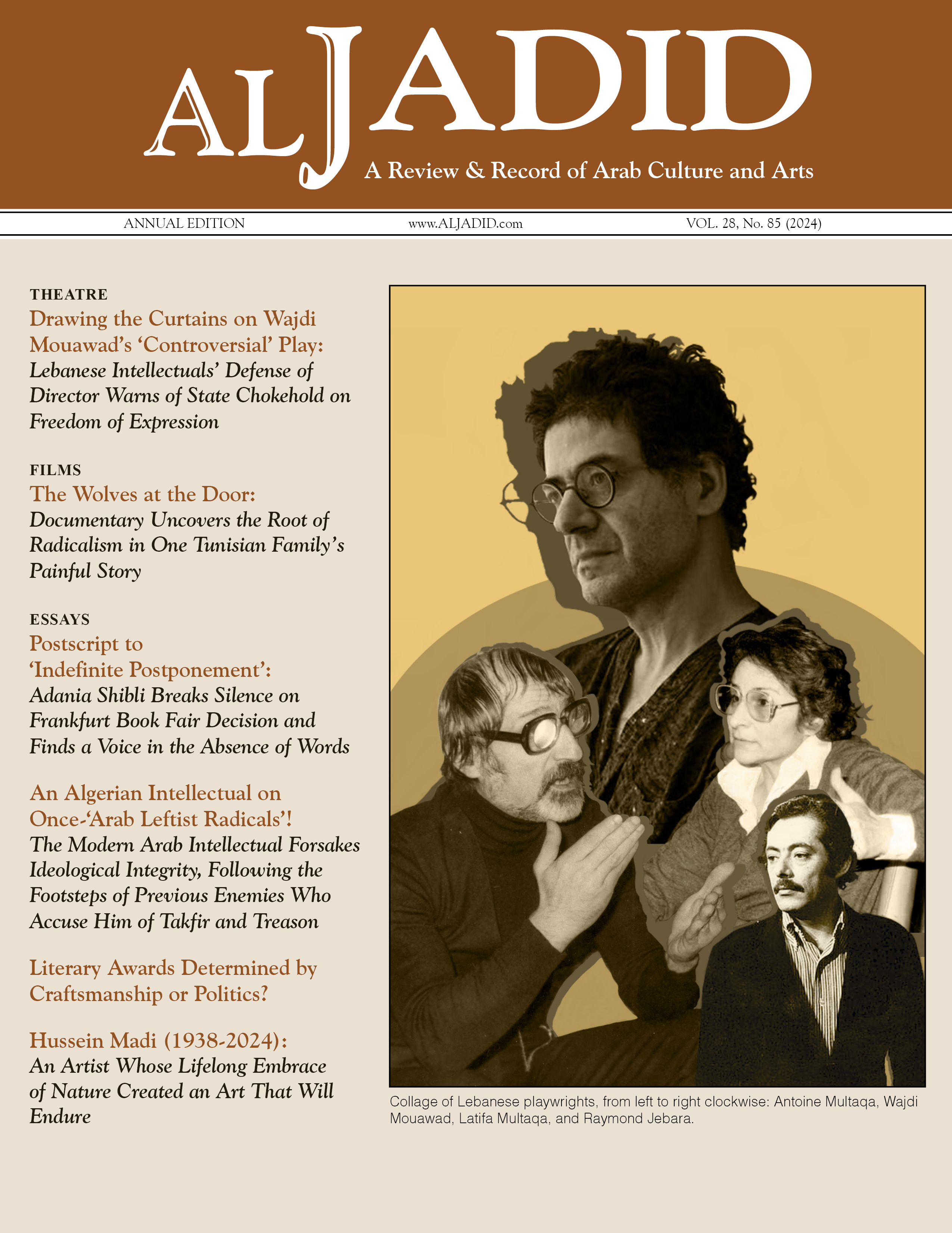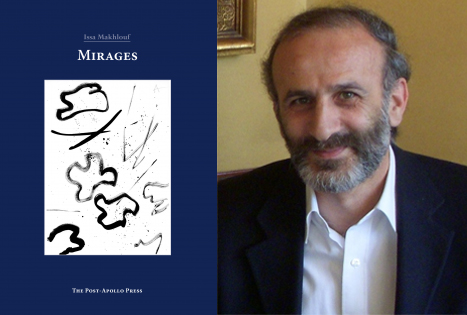Category
Essays and Features
volume_index
20
issue_index
71
year_index
2016
hyperlink_aljadid
http://www.aljadid.com/content/reckoning-darkness-looking-back-algeria%E2%80%99s-dark-decade
No West Without East: Robert Kaplan’s ‘How Islam Created Europe’
Category
Editor's Notebook
volume_index
20
issue_index
71
year_index
2016
hyperlink_aljadid
http://www.aljadid.com/content/no-west-without-east-robert-kaplan%E2%80%99s-%E2%80%98how-islam-created-europe%E2%80%99
‘Children of Monsters’: Doomed by Nature and Nurture?
Category
Editor's Notebook
volume_index
20
issue_index
71
year_index
2016
hyperlink_aljadid
http://www.aljadid.com/content/%E2%80%98children-monsters%E2%80%99-doomed-nature-and-nurture
Manufactured Expertise: Selling Out Arab News Audiences
Category
Essays and Features
volume_index
20
issue_index
71
year_index
2016
hyperlink_aljadid
http://www.aljadid.com/content/manufactured-expertise-selling-out-arab-news-audiences
On Mother’s Day
Manufactured Expertise: Selling Out Arab News Audiences
‘The Morning They Came for Us’: Untold Stories of Syria's Most Vulnerable Victims
Ms. Janine di Giovanni, one of Europe’s most respected reporters, chronicles the hardships inflicted upon adults and children alike, telling tales both gruesome and emotional in her new book, “The Morning They Came for Us” (Liveright, 2016). From her visits to Syria in 2012, di Giovanni gathered stories, speaking with a diverse group of people including pro-Assad nuns, regime doctors, and civilian activists...“The Morning They Came for Us” provides rich content that can be difficult to find in daily news coverage alone.
Dreaming at the Crossroads of Cultures: Mirages
Mirages
By Issa Makhlouf, translated into English by Alicia F. Lam
The Post-Apollo Press, 2015
Issa Makhlouf, an expatriate poet, possesses an anthropologist’s eye, a philosopher’s soul, a journalist’s sense of detail – and a heart rooted in the mountains and valleys of Lebanon.
Love and Loss: An Iran-Iraq Story
For those unaccustomed to witnessing the daily, random bombardments of cities during a bloody conflict like the eight-year Iran-Iraq War, it would be hard to imagine the lives of those who actually endured those experiences. The novel “A Portal in Space” (Center for Middle Eastern Studies, University of Texas at Austin, 2015), by Mahmoud Saeed, allows readers to feel, share, and interact with the ordinary people living in war-plagued Basra, Iraq. You cannot help but feel connected to the characters as they struggle to cope with their worries, fears, and despair.
Diaspora Arab Women Writers: The Legacy of Shahrazad and Female Infanticide
Anxiety of Erasure: Trauma, Authorship, and the Diaspora in Arab Women’s Writings
By Hanadi al-Samman
Syracuse University Press, 2015
“Anxiety of Erasure” offers a dual-layered journey of discovery: first, sharing the journey undertaken by Muslim and Christian diaspora Arab women writers with their traumatic and triumphant creative experiences; second, revealing Han






